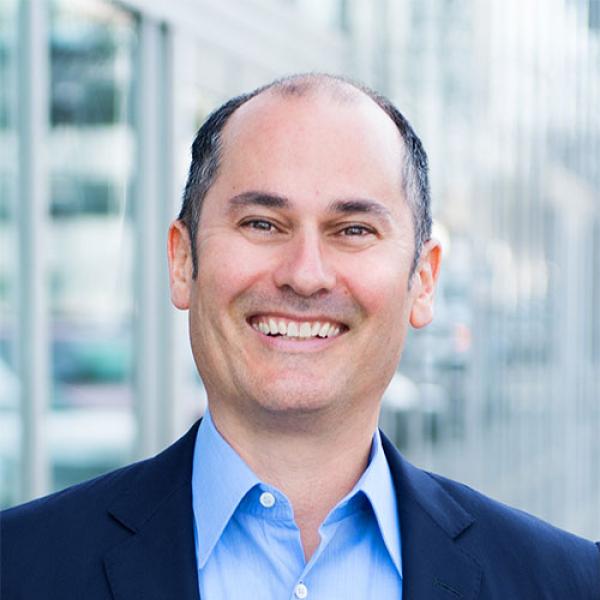
The field of Functional Medicine is growing so quickly that it is truly like the wild west. Somewhat lawless and disorganized, systems are a little unsteady, no real sheriff in town yet to create organizational structures out of the chaos. I’m sure the field will settle down and develop intensively regulated written rules, but for now it’s in flux.
A functional medicine practitioner can be just about anyone doing just about anything under just about any license or, believe it or not, with no license at all. Interestingly, there was a period of time in the United States in the 1800’s where the public became so frustrated with doctors of the day that a populist revolt lead to elimination of all medical licensing. Talk about crazy overreactions, but I get it. Licensing of people and giving them control over an area as important as human health is a big deal and implies a lot of responsibility and self-governance. Frankly, our current medical system has been shattered for a decade or two now. Those in power have abdicated their responsibility to care for the sick. We have a population getting sicker and fatter and more depressed and dying from opiate overdoses (often initiated by unscrupulous doctors) which is like a throwback to the Opium Wars in the 1840’s and 50’s where China and Britain dealt with the exact same issues. Companies selling drugs purposefully addicting an entire vulnerable population to powerful opiates.
It is really bad now in this country in the present day. Probably as bad as it was in the 1800’s when the last populist revolt in the United States shut down every medical school in the land and demanded a do-over for control of American medicine.
Enough with the history. When we look at what a functional medicine nutritionist is in terms of current licensing and regulatory issues it gets murky. In practical terms the functional medicine space is divided into two general categories of practitioners. Imagine a dentist’s office, I’m sure in the 1850’s the dental profession had its own educational requirement issues and what-not but now we all accept a clear structure. There is a dentist or maybe two dentists that own the practice. There is a hygienist who cleans your teeth and the X-Ray tech who takes images of your teeth. The roles are clear.
In functional medicine the “dentist” role is played by a licensed healthcare practitioner. Back in the day when I was being trained in the early 1990’s the functional medicine docs were pretty much all chiropractors. These days it is divided up more between DC’s, ND’s, Lac’s and MD’s. In my current training programs 70% of the new students are female medical doctors in the 40-50 age range. There have always been acupuncturists, nurse practitioners and naturopaths doing this work as well. Point is the lead person has to have a medical license of some sort in order to get lab tests, order supplements, deal with insurance and so on.
In some offices the person in the doctor role gets so busy they want help, or they get tired of talking about nutrition so they bring in a functional medicine nutritionist. In other cases, the person in the doctor role doesn’t know a lot about human nutrition and functional medicine yet (i.e. they are new to practice) so they bring in a junior person that has been in the field for a while. In other cases, the functional medicine doctor may know a lot about functional medicine but not have extensive training in clinical nutrition so they hire someone that does. In my mind nutrition and functional medicine are one and the same thing, but as the profession has grown there has been the understandable increased specialization. When I started my practice there were no functional nutrition practitioners in existence there was no course on how to become a functional nutritionist. I’m sure the dentists in the 1850’s were in the same situation, on their own, pulling teeth without a ton of other people running around their office.
So, let’s fast forward to the present day and address the question, ‘what is a functional nutrition practitioner’? This role could be played by someone like me. I graduated chiropractic college in 1995 and then spent over ten years in various self-guided post graduate education programs that all focused on human nutrition and the clinical application of nutrition to human disease. There was no extra license or degree, it was a figure-it-out-on-your-own process back then. I had one-on-one mentors, I traveled and took certification programs. I attended clinical nutrition conferences regularly (like a lot!) sometimes 1 or 2 a week and for sure most weekends for the first 4 or 5 years, then I backed off to one or two seminars a month. When I hit year ten of this obsessive learning phase I backed off and started teaching. I now teach at least 5 hours weekly for Kalish Institute students and travel to teach other groups at least ten times a year. Of course you learn even more about a subject as you teach it. Point is the learning curve is long and complex, you can’t just walk into this job after a weekend seminar.
So, my generation of docs grew up having to master both functional medicine itself including complex lab analysis and program design skills, along with mastering the general field of human nutrition and its clinical application. It would be like the dentist taking your x-rays, cleaning your teeth and filling a cavity on their own and talking to you about stopping sugar so your teeth don’t rot.
Nowadays in the current era there are several functional nutrition education programs which specifically teach the nutrition part of functional medicine and are in general attended by people who are not doctors but want to work in the field of natural and integrative health. These functional nutritionists then typically work in a functional medicine doctor’s office as you would expect most dental hygienists to work in a dental office. Sometimes they work on their own and accept referrals from functional medicine practitioners. And still to this day, some functional medicine doctors do their own nutritional coaching and have more of a solo practice model.
If you are interested in becoming a functional nutritionist then I recommend checking out all the major programs and seeing which is the best fit. Andrea Nakayama has a course she’s designed called Functional Nutrition Lab, there is the Functional Medicine Coaching Academy. Chris Kresser, through his Kresser Institute, also trains health coaches. Although many of my best friends are functional nutritionists and health coaches, I don’t train them in my programs as I focus on lab analysis for doctors.
So many new folks are coming into the field of functional medicine now that it’s confusing. There is no true regulatory body. The most official organization we have is the Institute For Functional Medicine and they offer a certification in Functional Medicine but you will find many practitioners that are not certified, either because they weren’t trained properly or because they were trained a long time ago before IFM began to certify people.
For functional nutritionists we are in a similar boat, some are certified some are not. Some of the really good ones who have been doing this a long time may not be certified but that group usually has some type of license, either an RD, DO, MD, DC, PA, NP, LAC or something similar. If you are looking to become a functional nutritionist I do believe having an extensive background training in human nutrition is key. I do not believe this requires an RD (registered dietician) degree. One needs to understand everything there is to know about food, the various diets and how they work or don’t work, nutritional supplements and their therapeutic use and potential. Just learning about magnesium alone could take a person several months.
If you are so inclined, I think it’s an excellent field to get into. The timing is great as functional medicine is growing and we need new nutritional practitioners to help the growing legions of sick folks seeking help. I do think having some kind of degree in addition to the basic certification helps provide a more complete background for understanding the work, although it’s certainly not required. Back in the 1990’s some of the best functional nutrition practitioners were personal trainers and exercise physiologists who really understood nutrition and studied it as part of their work designing exercise programs. There are also current nutrition certification programs that can be a basis for getting into a functional nutritionist role like Bauman College in Berkeley, California.
My final word on this is just give yourself time, at least 3-4 years to really develop even an elementary understanding of the work. If you don’t end up getting an official degree in the health sciences then you pretty much have to take a series of courses on your own or you’ll never get what is happening at a deep level. I’d include college level courses in: cell biology, chemistry, biochemistry, physiology, endocrinology, neurology, gastroenterology, communication skills and maybe psychiatry or human psychology (you’ll need a mental health class just to get through the other courses without going crazy!). Once you get the science part sorted out you can then go on and learn about how all the foods impact human health and how the various supplements work to change and improve physiology. Again, it’s a 3-to-4 year process but one that is extremely worthwhile, I can’t imagine a more rewarding career for anyone.

